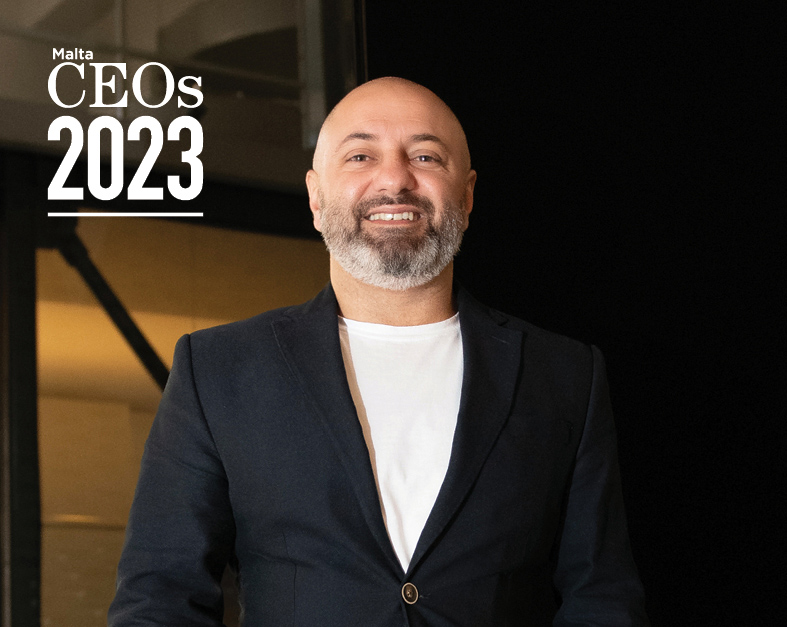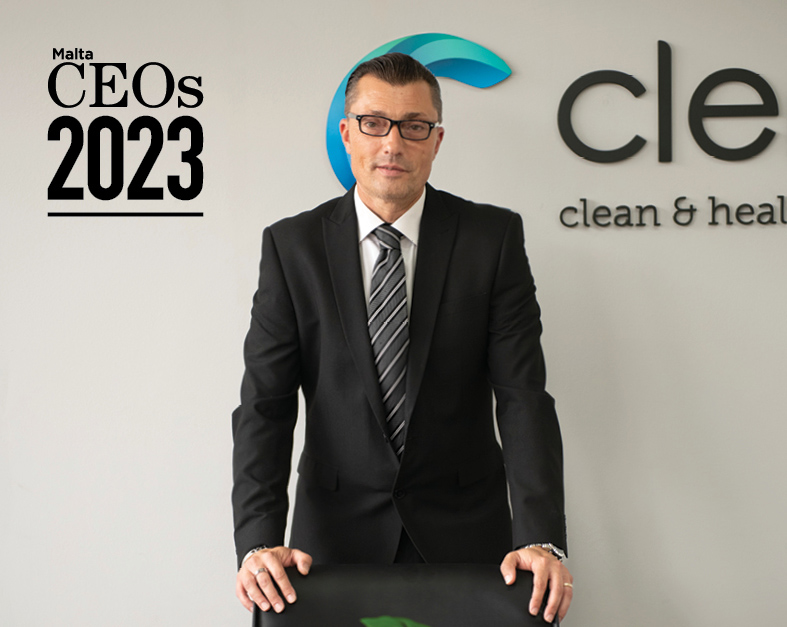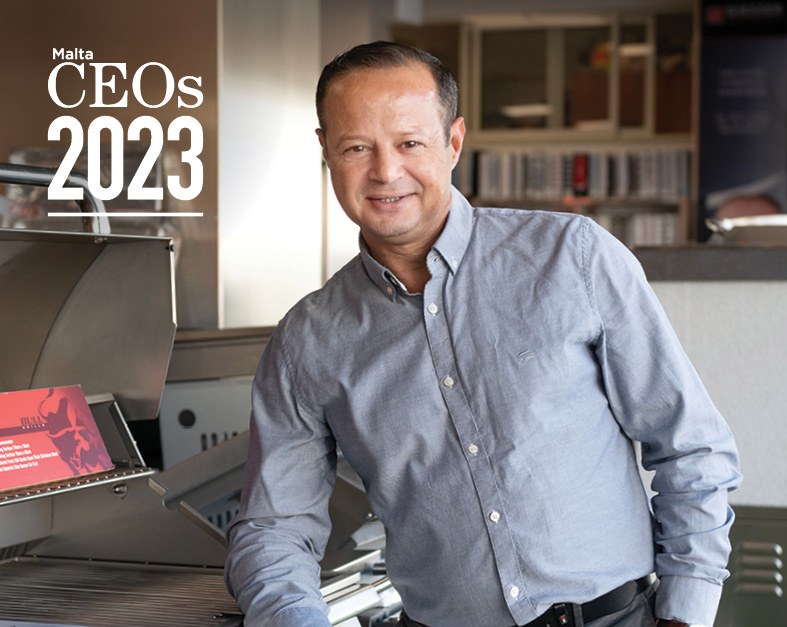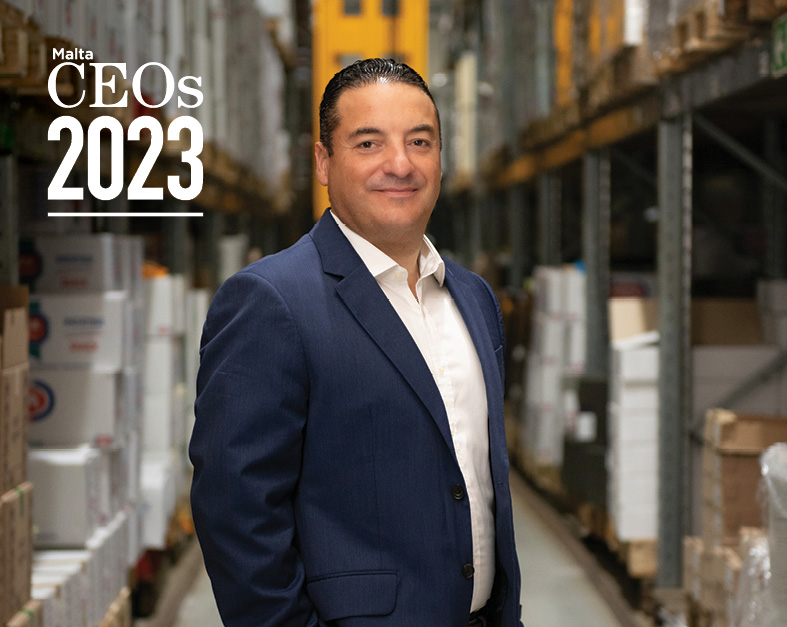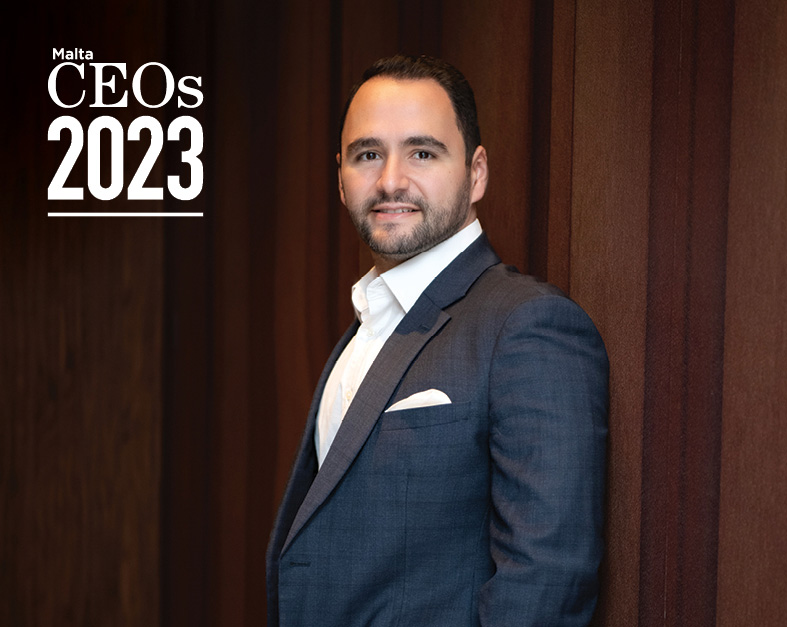Appointed CEO of Malta Enterprise in 2019, Kurt Farrugia approached his new role with energy and a clear vision: to continue diversifying the economy, to maintain continuity in aiding companies that were in the process of setting up on the island, and finally, to work with current FDIs to enlarge and expand their operations.
“One of the aspects I really wanted to improve was the start-up ecosystem,” Kurt Farrugia says of his early days as CEO of Malta Enterprise. “I firmly believe that we can continue to diversify the economy, firstly by attracting talent and secondly by making sure to entice companies at an early phase so that they can grow their products and services in Malta.”
The first step in achieving this mission was acquiring a snapshot of where Malta Enterprise stood and setting a strategic direction for it moving forward. “I began by taking stock of the situation and analysing which companies we could target, as well as the incentives that made sense for the Maltese Islands,” he explains, noting that, this exercise revealed that rather than incentivising larger companies with low-skilled workers, it makes more strategic sense to attract smaller companies with a better-skilled workforce and higher wages. “Those were strategic goals that we are now achieving,” he smiles.
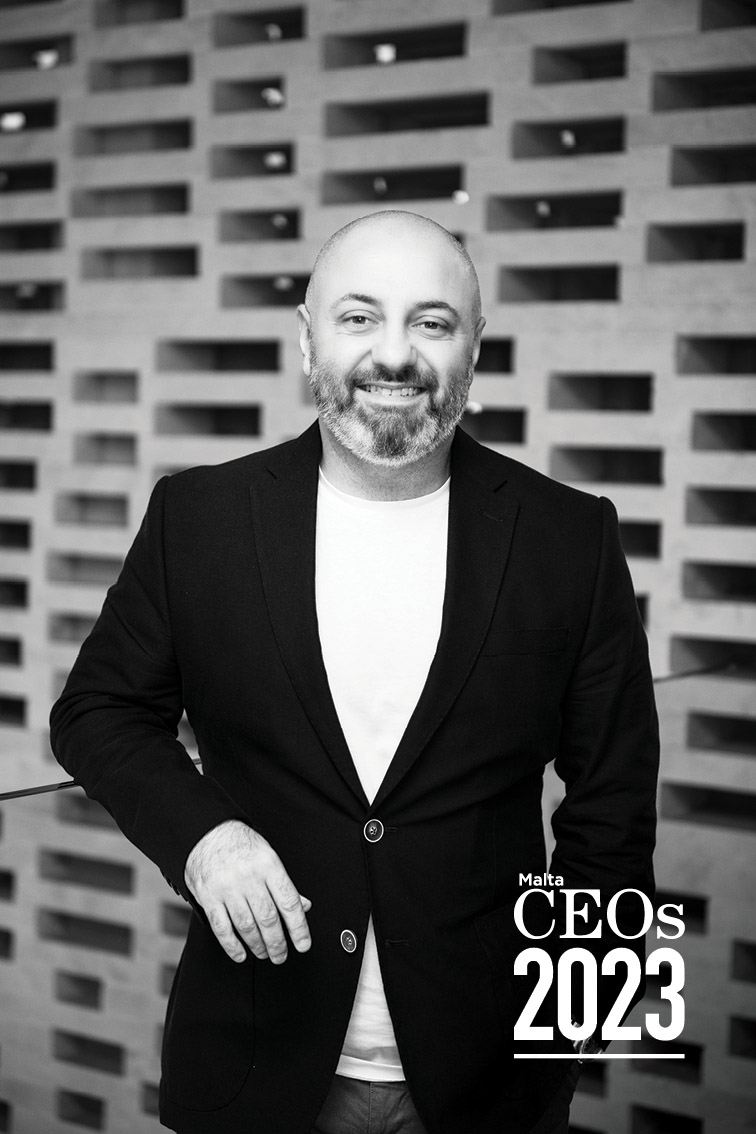
One reality he didn’t foresee, of course, was COVID-19, but this too brought about its own milestones. Highlighting a core moment, Kurt recalls, “when we were called into the office of the Prime Minister to come up with a solution for the doomsday scenario that the pandemic was bringing about – all the forecasts indicated that we would have thousands on unemployment benefits.”
Against this difficult backdrop, Malta Enterprise was among the stakeholders tasked with drawing up plans to assist the local economy – an unprecedented challenge that came with no instruction manual.
“No one had any idea of what was to come, and internationally there wasn’t enough experience. When COVID hit, it hit very quickly, so we couldn’t look at what others were doing. Together, we came up with the idea of a wage supplement, as well as several other schemes, including quarantine assistance and subsidies on electricity and rent, targeted to help keep businesses alive and employment stable.”
Since then, the country and its economy have proven their resilience, emerging from the pandemic with record low unemployment levels and the news of several company expansions, the CEO points out, referencing De La Rue’s recent expansion, as well as new investments, particularly in pharmaceuticals and aviation.
“Added to the expansions and new, large manufacturing investments, we developed a healthy start-up ecosystem, of which we will see the benefits in the years to come,” he maintains, detailing his experience at the entity’s helm.
“My predecessor said to me that no one day is like the other in this job – but I’d even take that a step further. Things change so much from meeting to meeting, even on the same day,” he laughs, attempting to describe a typical day in his working life. “I usually start off with a meeting over a coffee before going to the office. Between 10am and 4pm I’m usually in the office meeting our clients and new prospective investors, after which I try to catch up with the inevitable backlog of calls, emails and messages. Then, between 5pm and 6pm, I fit in a meeting outside of the office.”
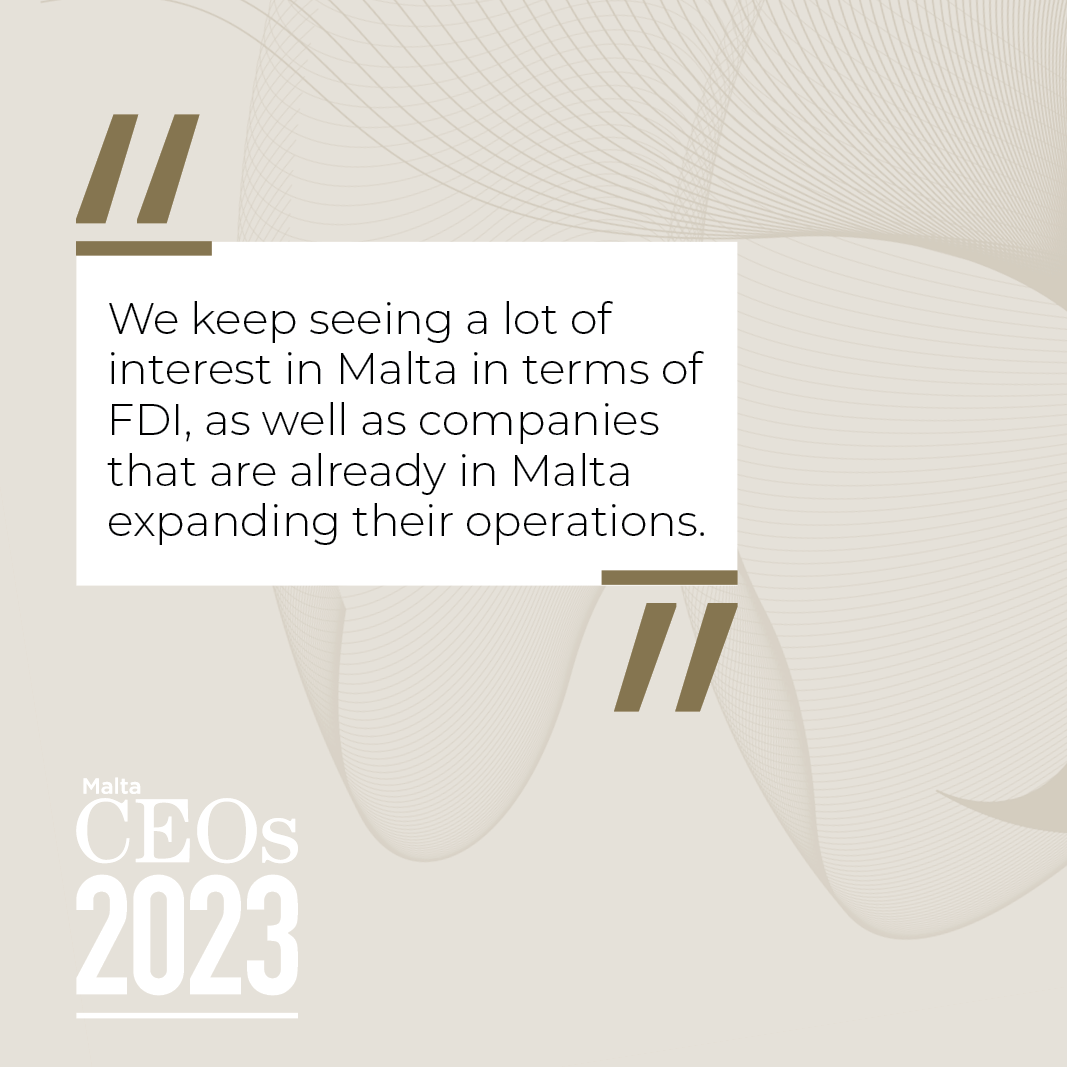
Admitting that he does struggle with balancing business with his personal life, the CEO has one go-to when he needs to decompress. “Up until a year ago, I’d relax by playing games on the PlayStation after work, but now I have competition from my seven-year-old! I also fit in an early morning gym session three or four times a week. I do need to work harder to find a balance though, and one of the issues with this is the regular invites to work-related events in the evening. It’s part of my duty and I try to fit that in as well, but it’s not the best part of the job!”
First established in the 1950s, Malta Enterprise is the latest evolution of multiple organisations before it, all sharing the objective to attract foreign investment to Malta. As CEO, Kurt’s work is certainly never done. “One of Malta’s unique selling points is that we know our clients on a personal basis. We meet and socialise with them regularly, and are always on hand to help them deal with any challenges,” he says, acknowledging that, as time goes by, it is imperative that the entity continues to target the needs of Malta’s contemporary business market.
“We need to make sure that the jurisdiction is not just catering for companies, but that it is also catering for the employees that they want to bring to Malta. So, we need to ensure that the companies setting up here find the right talent, and that the employees they attract find the right environment to live in Malta,” he explains.
As 2022 continued to throw curveballs at businesses across industries, the CEO believes that the way forward lies in the agility to adapt. “From my experience of all the challenges over the last three years, I’ve learned that while you have to plan for the long term, it is also important to be able to adapt as quickly as possible.”
This is also true for Malta Enterprise itself, he notes, stating that the speed with which the entity reacts to feedback coming from stakeholders has certainly been affected. “COVID taught us that companies need to adapt quickly to changing circumstances to survive, so we launched the Change to Grow and the Smart and Sustainable schemes, assisting companies to make their operations more sustainable. This also fits in with the strategic goals we set out before the pandemic,” the CEO reveals.
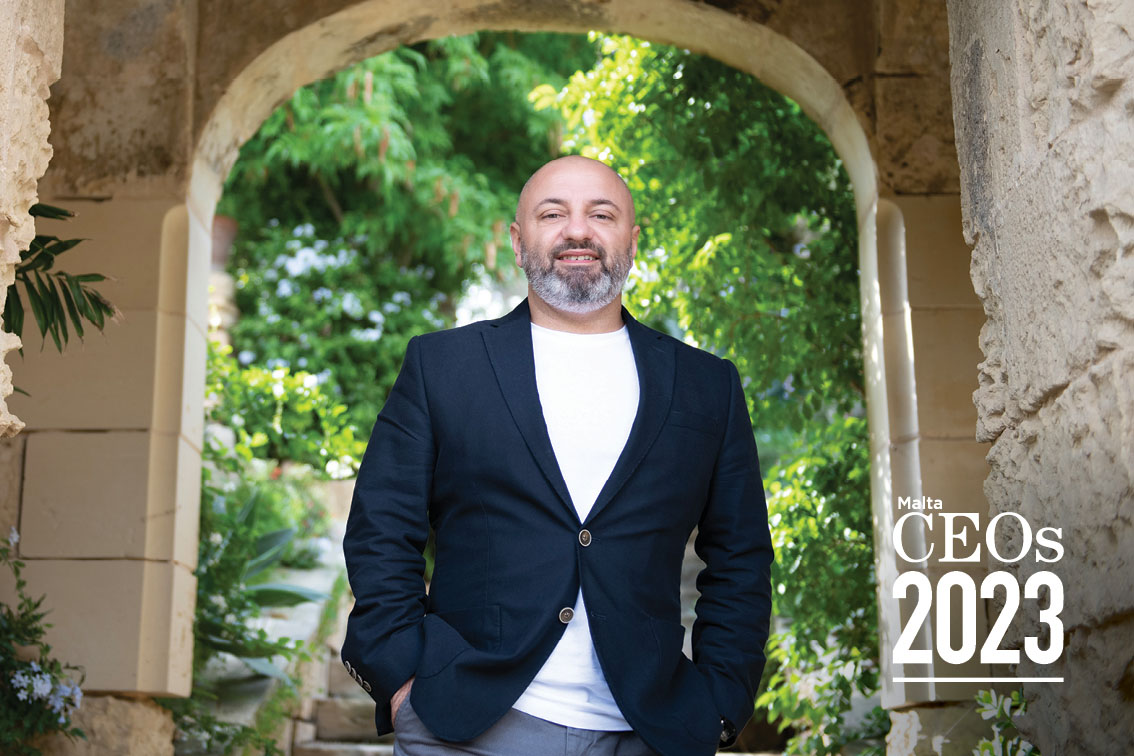
Setting his sights on the future of the country’s economy and foreign direct investment, Kurt believes that the indicators are positive. Though while he certainly has plans, he also emphasises the importance of flexibility to face unexpected circumstances.
Still, he ventures, “we keep seeing a lot of interest in Malta in terms of Foreign Direct Investment (FDI), as well as companies that are already in Malta expanding their operations. The fact that the country assisted them with the right tools in difficult times has meant that several companies are now making strategic decisions to expand in Malta as a result.
“Moving forward, we need to ensure that we are targeting a better quality of life for all those living in Malta. This is not just down to Malta Enterprise, but the country as a whole. We need to ensure that the decisions being taken in the business sphere are supplemented by the right decisions being taken in relation to the environment and quality of life. If we do not align in this respect, we will face consequences.”
This article is part of the serialisation of 50 interviews featured in MaltaCEOs 2023 – the sister brand to MaltaCEOs.mt and an annual high-end publication bringing together some of the country’s most influential business leaders
‘You start from nothing, and then you grow’ – Clentec Ltd Founder and CEO
MaltaCEOs 2023 serialisation: Simon Jesmond Turner shares that some have been with the firm from the start, with children now ...
‘Whatever you’re doing, you always need to be forming relationships’ – Zamco Group CEO
MaltaCEOs 2023 serialisation: Sandro Zammit shares that the company almost never says no to anything, and, while that can be ...
‘Some of the greatest opportunities emerge from crises’ – Nectar Ltd CEO Roderick Abela
MaltaCEOs 2023 serialisation: Roderick has come a long way since his first days at the company nearly three decades ago.
‘I love inspiring others to work towards a goal’ – Bluefort CEO Edward Borg Grech
MaltaCEOs 2023 serialisation: Edward sees a very bright future for the company, particularly since the subscription economy is growing.


